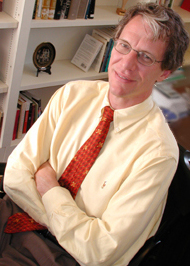Parke Muth served 28 years in the Office of Admissions at University of  Virginia. There, he held titles of Associate Dean, Director of Application Assessment Training, Director of International Admission, Director of Selection and Recruitment of Honors Scholars, among others.
Virginia. There, he held titles of Associate Dean, Director of Application Assessment Training, Director of International Admission, Director of Selection and Recruitment of Honors Scholars, among others.
SocratesPost listened to, analyzed, and summarized a 90-minute College Essay Guy podcast episode What I’ve Learned from Reading 10,000 College Essays in which Parke reveals what admissions officers really think about your essays and what some of his favorite essays were about. Now an admissions and essay coach, Parke independently guides students on their college applications and essays, positioning them for the best chances of admittance.
Parke has a wealth of experience and seems like an effective coach, but not unlike many academics, he seems to struggle to answer questions directly and succinctly. The content is helpful, but the delivery…not so enjoyable.
Don’t worry. We parsed through all the filler and gave you The Skinny on what you need to know.
Here are the…
7 best takeaways from Parke Muth’s nearly three-decade career in admissions
When writing your college essay, use the pyramid theory.
“You are looking for something to grab you if you’re sitting in your chair 8 hours at a time. It helps to have something in the first paragraph that’s focused and concrete rather than ‘I wanna save humanity.’”
Parke recommended starting the essay with an extremely specific hook. Then, as the essay progresses, connect these specificities to abstractions and bigger ideas, emulating the shape of a pyramid. Parke quoted the first sentences of a few very memorable essays. It’s difficult not to want to continue reading.
- “I sat in the back of a police car.”
- “Grandma started about the rats today — six foot ones.”
- “The woman wanted breasts.”
If you’re going to write a sports essay, don’t make it about the big game.
“Winning the big race or losing the big race. I would never make it about that. I was competing at a high level but it’s still a little bubble. Now I can look back and say wow that really wasn’t that big a deal.” –Parke Muth
Parke recounted his high school experience getting invited to a pool party by a fellow athlete he revered and feared. This chiseled athlete, whom Parke thought did not like him, later on played for the New York Jets. A story about a relationship or the unveiling of a misconception means more than the results of the big game. A championship or loss in a single high school level game can seem insignificant to application readers who read thousands of essays on more positively impactful experiences.
When it comes down to decision time, your essays (and possibly activities) matter more than scores.
“I’d tell kids, ‘you need to think what is it about you that would lead someone to advocate for you.’ I tell them all the time I would never advocate for a number. Like ‘wow, did you see that SAT? Wow, that kid must be great!’ I would say that about an essay or activities.” –Parke Muth
